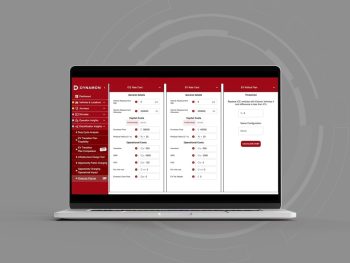Fleets can now calculate and compare the total cost of ownership for petrol, diesel and electric vehicles using Dynamon’s new Financial Planner feature.

A major new update to its Zero software, Financial Planner automatically pulls together the key pieces of data needed to calculate total cost of ownership (TCO) and generates results that compare owning and operating an electric vehicle fleet to that of an internal combustion petrol or diesel engine (ICE) fleet.
Additionally, the tool offers insights into which ICE vehicles should be prioritised for a switch to electric, and which ones can be transitioned at a later stage.
“Our new Financial Planner feature gives fleets a tool they have been craving for some time: a definitive way to determine the costs of electric vehicles compared to internal combustion ones,” said Dynamon CEO Angus Webb.
It’s based around a ‘rate card’ which uses a wealth of data from the fleet, including purchase price or leasing costs, vehicle age, mileage, residual value, charging tariffs, insurance, SMR and taxation. For ICE vehicles, it can also factor in emission zone fees, fuel price and fuel efficiency, while for EVs it adds in EV tariffs for public, workplace and domestic charging.
The software then generates an in-depth financial report on the fleet, suggesting which vehicles can switch to EV now, and which ones can be transitioned at a later stage.
It’s designed to cut through complex calculations to compare multiple different costs, creating a clear cost pathway for fleets to help roll out their EV strategy based on informed data in every single facet of the operation.
Combined with other features in the Zero package, it means businesses can see exactly what their operation could look like, now and in the future, as they transition to electric.
As well as being able to forecast and compare vehicle costs, fleets can also model which EVs would be most suitable, predict how routes and jobs may need to change, and understand the charging infrastructure needed.
Further innovations in the software include forecasting future fleet expenditure based on varying operational vehicle lifecycle scenarios, and also charting the capital expenditure required to switch to EVs.
It can also identify subsets of vehicles within the fleet which are ripe for electric transition, as well as report and predict fleet greenhouse gas emission reductions based on the replacement plan for switching petrol and diesel to electric.

